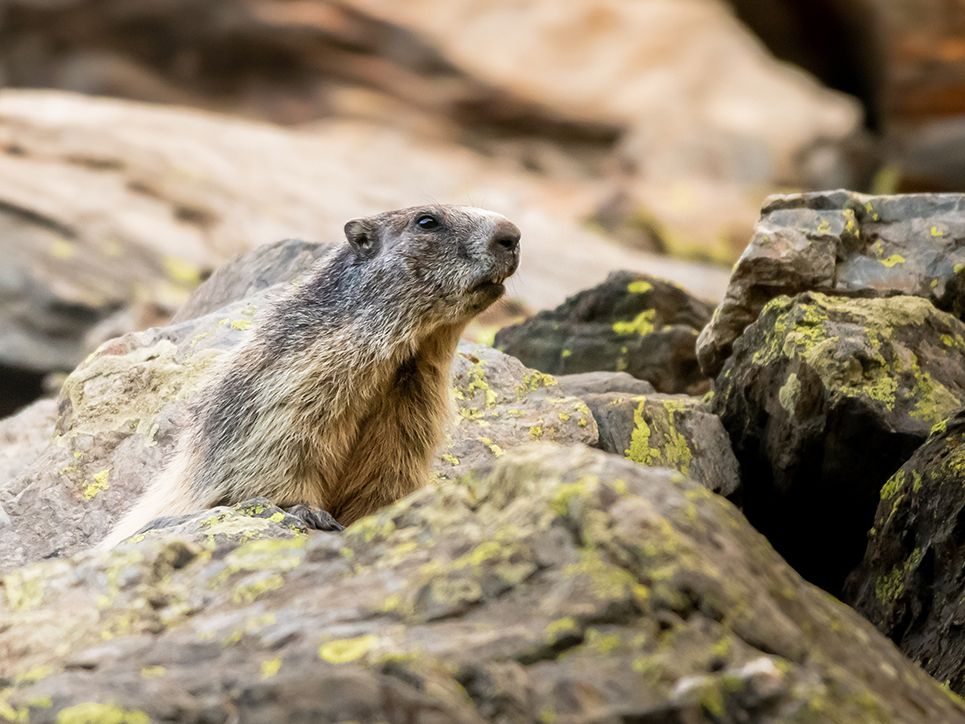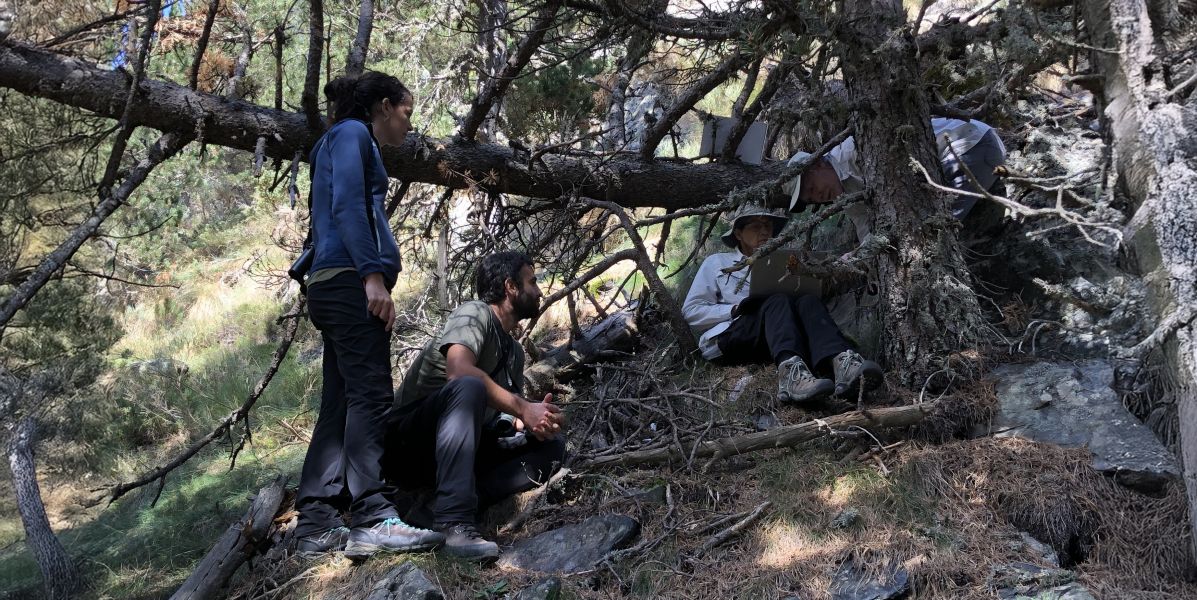Instant Camaraderie Bonded by Mountains, Mud, and Marmots
11 June 2025

Written By Jon Gorey
But perhaps for the first time, one group of mostly strangers from various countries bonded so well during "Wildlife in the Changing Andorran Pyrenees" that they are already planning a reunion on another Earthwatch expedition next year.
One key reason for their instant camaraderie? The challenges they overcame together, including long treks at high altitudes. ("Wildlife in the Changing Andorran Pyrenees" is among the most physically demanding expeditions Earthwatch offers.)
"The difficulty of it all really brought us together as a team," says Ciara, an American high school student who joined the expedition with her Irish cousin, Hannah. "When things get tough, you tend to bond through the struggle."
Connections began forming from the very first full day, when the team set off on a strenuous hike. "It was absolutely gruelling... I thought, 'Oh my God, this is so hard'," Ciara recalls. "We finally reached a small peak, and I will never forget—Lulu was right behind me, and we hardly knew each other—she turned to me and said, 'Ah, that was easy. I could do that 10 times!' I just burst out laughing. It lightened the mood and set such a great tone for the rest of the trip."

While bonding through adversity helped, a relaxing break after their first major hike—shopping and visiting museums in Andorra la Vella—also strengthened the group's connection. Staying in semi-luxurious accommodation helped lift spirits too.
After long days hiking through the mountains, weighing and releasing small mammals, the team would measure trees and monitor birds to track climate-related changes in the landscape. Then, they would return to a rather posh hotel to clean up before sharing a group dinner. measuring trees, and monitoring and tagging birds to track climate-related changes, the team would return to a rather posh hotel to clean up before sharing a group dinner. "The food was incredible, so good," says Hannah.
The scientists—Anna, Albert, and Bernat—were just amazing people. We spent every day with them, including meals, and it felt like being part of a big family. Meeting people from around the world and getting to know them like that was a truly special experience. —Ciara
The group’s quick bonds only grew deeper during what they now affectionately call "Site 11 Day," named for that day’s data collection location.
A light morning drizzle turned into heavier rain, making the steep, rocky hillside slick and treacherous. For some team members, such as Andrê and Youssuf from Dubai, where rain is rare, it was a brand-new challenge. "Bless their souls, they were just freezing," Natalia says with a smile.
Later, the group split to check camera traps. Hannah, Charlotte, and Ian were navigating with GPS alongside Anna. "Ian was leading, then suddenly the GPS directed us straight up this impossibly steep slope," says Hannah. "We climbed it and made it, but then I lost my footing."
Charlotte recalls, "I saw Hannah slipping, and my heart dropped." Thankfully, Hannah managed to catch herself, and with help from Anna and Ian, she was pulled back to safety. "It was quite the moment," Hannah says with a grin. "I was alright—but poor Charlotte!"
At the top, they posed for a photo, grinning with relief and pride. "We jokingly call it the 'Not Dead Yet' photo," Hannah laughs. "That moment definitely brought us even closer. Nothing like a little surprise adventure to build bonds."

There were also calmer, awe-inspiring moments that, while less dramatic, left a lasting impression.
"The day we did the long hike over the mountain and down again, we came across a beautiful lake," recalls Anna. "Just beyond it was a big patch of snow, and we all ended up in a huge snowball fight. For many, it was their first time seeing snow. That was really memorable for me."
Charlotte’s favourite moment? Seeing marmots lounging at an off-season ski resort. "I had researched the flora and fauna of the Pyrenees before the trip, and marmots really stood out to me—they are amazing, adorable creatures," she says.
As the expedition progressed, others spotted many marmots, while Charlotte had only glimpsed one from afar. Thankfully, lead scientist Bernat knew just where to find them: at a nearby ski resort where the marmots gather on summer afternoons. "So, after hiking and showering, we all jumped back into the vans and went to see a bunch of marmots. It was fantastic."
Natalia says the trip deepened her appreciation of nature. "I now better understand the urgency of protecting the environment. Being that close to nature makes you realise how quickly it could vanish because of human impact. That awareness is something I will never forget."
For Lucia, the friendships stood out most. "I did not expect to become as close to people as I did. I have been on other hikes where we met people but did not stay in touch. This time, we said we would, and we actually did. I still talk to some of them almost every day. I had not realised how much I missed them until we saw each other again like this."
The group is already planning to reunite on another Earthwatch expedition next summer—perhaps an archaeological dig on "Unearthing Ancient History in Tuscany."
Hannah says the experience gave her a clearer picture of what a science career could look like, something she hopes to pursue at university next year. "Unlike being a doctor or accountant, I never had a clear idea of what scientists actually did. But now, I have a much better sense of what the job involves—and it is really interesting."
Charlotte, on the other hand, is not planning to study science but joined for the hiking and the challenge. "The whole experience was amazing. Meeting new people, pushing myself physically, everything about it was just incredible."
Others agreed the expedition pushed them to their limits—but in the most rewarding ways.
Whether you have a background in science or are simply passionate about protecting our planet, these expeditions provide hands-on experiences that contribute directly to critical environmental research. Participants learn field research techniques, collect valuable data, and gain a deeper understanding of the challenges facing our ecosystems—all while exploring breathtaking natural environments.
By joining an Earthwatch expedition, you can actively contribute to the preservation of coral reefs and other vital ecosystems while being part of a global movement for environmental conservation.
Want to participate in a similar expedition? Get involved today!